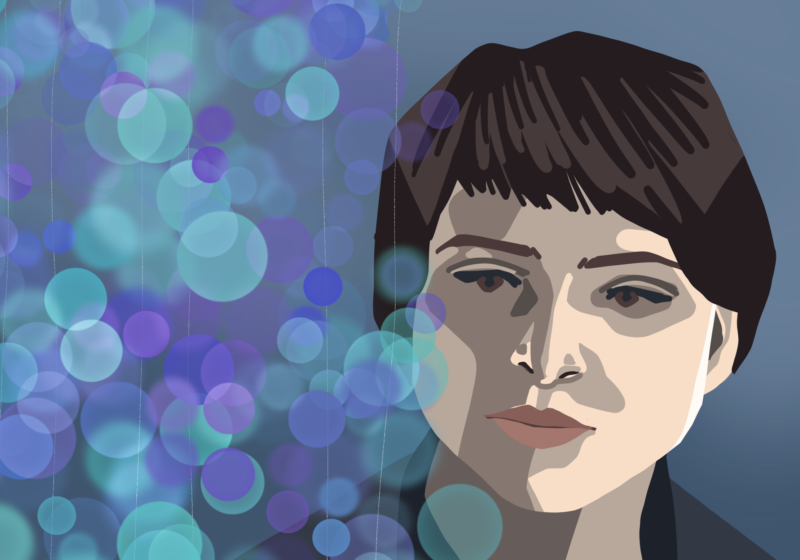5/5 stars
The following review is a part of a series of reviews from the Polish Film Festival. Learn more about the festival here.
These days, many films that want to look like intellectual think-pieces try too hard to be politically and socially “relevant.” When it comes to giving a story to the audience, these “artists” try to scold the audience into conforming to their beliefs, rather than letting their audience think for themselves. This is apparent in many modern pseudo-intellectual films (ahem…“Promising Young Woman…” ahem…“Don’t Look Up”). I desire a return to a more humanist approach to film form and storytelling that focuses on the human experience being vividly expressed through simple emotion(s). And that’s what I got from Krzysztof Kieślowski’s “Three Colours: Blue.”
As the start of the thematic trilogy “The Three Colours,” “Blue” focuses on Julie (Juliette Binoche), a recent widow who is grieving the loss of her prominent composer husband Patrice (Hugues Quester) and their daughter in a car accident. After being released from the hospital, she tries to forget her past by discarding anything that could remind her of the husband and daughter. One of these relics is an unfinished composition of Patrice’s. That is, until Patrice’s former colleague, Olivier (Benoit Régent), decides to complete the composition to be performed to the public. But as she tries to detach herself from her past, moments and people from her life are always returning to remind her about this life that in reality, she still feels connected to.
This is probably one of the most impactful films I have ever watched, and one that everyone else should watch as well. This illustration of France is so vibrant despite the closed-off nature of Julie’s lifestyle; I would want to be left alone in that world. This could be due to the amazing restoration of the original 1993 film that was shown, which makes the many usages of the color blue throughout the film much more stunning. In addition, the ambivalent eye the cinematography utilizes makes you wonder what it will focus on next.
The writing of this film is excellent at showing vulnerability. Through conversations, we get to feel empathy for Julie and the trauma she is constantly hounded by. Julie’s conversations with others slowly reveals how the bond between them is becoming stronger, even if she doesn’t want it to.
The musical motifs used in “Blue” are also some of the best ever placed in film. There are many scenes where the main focus is the compositions by Julie, Patrice, and Olivier. These are either in moments that show the inside of Julie’s mind when she is reminded of memorable things from her past, or when she or Olivier are reading music from a chart. As we follow the notes, we also hear classical music burst through the scene, akin to the powerful scene in “Amadeus” (1984) where we see Mozart producing his “Requiem” with Salieri.
Juliette Binoche was born to play Julie in “Blue.” She is able to exude a feeling of seclusion, while also subtly showing her desire to make a life for herself and the people she trusts and loves. Hugues Quester’s performance as Patrice is an excellent piece of the film, as we see the undying and eternal love he has for Julie, in addition to his need to have a stronger bond with her as she tries to heal from her recent loss.
According to Kielwolski, he based the Three Colors Trilogy on the belief that the blue, white, and red in the French flag represent the well known French motto “Liberty, Equality, and Fraternity.” In this case, Kielwolski saw the blue in the flag as the symbol of liberty in the flag, which explains the free and wandering style of film that Julie lives in and entices viewers to continue watching this world. I don’t want to get too in-depth in this film in fear of revealing too much about the story, so I only recommend that you find the time to watch this beautiful and humane work of cinema, hopefully on the biggest screen ever.






